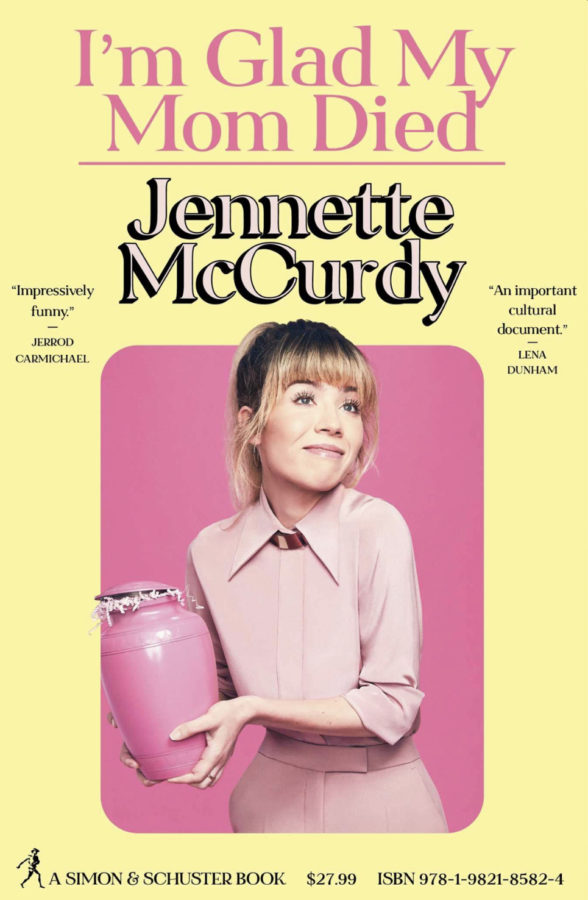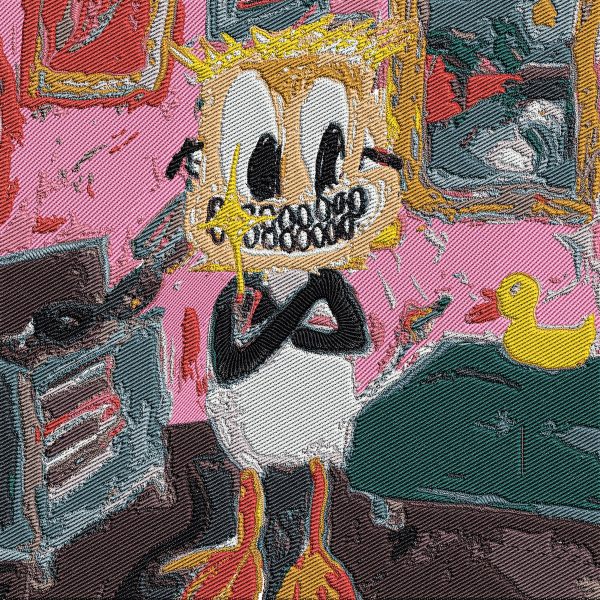I’m Glad Her Mom Is Dead Too
Jennette McCurdy recently released her first book and memoir.
Photo Simon and Schuester
The cover of “I’m Glad my Mom Died” By Jennette McCurdy.
August 31, 2022
Editor’s note: TW, eating disorder, abuse
“I’m Glad my Mom Died” is a memoir from ex-Nickelodeon star Jennette McCurdy. After reading this book, I will never be able to watch iCarly the same. This memoir pulls back the curtain on child stardom and how celebrities’ lives are significantly different than how we are led to believe. McCurdy’s constant mental abuse and exploitation from her mother made these years of her life a living hell.
When McCurdy was around 2 years old, her mother was diagnosed with stage four breast cancer. The experience was awful enough for her family, but it only got worse when survived. McCurdy’s mother made her entire family sit down once a week to watch an hour-long VHS tape, so she can show her three kids, (all of which were younger than 10 at the time) weekly “how strong their mother was”. She continued to use her disease to guilt-trip her family into doing what she wanted for the rest of her life.
As I continued to read the book, the more disgusted and shocked I was. I can never fathom living in the home McCurdy lived in for her early childhood and teen years. Her mom had forced acting upon her at the very young age of six because it was something she had wanted to do when she was young. She started to take her daughter to auditions in hopes of her getting signed by a management company. McCurdy described her experiences in auditions as stressful and nerve-racking because she hated acting.
McCurdy’s mother treated her like a young child well into her teenage years. She went as far as to shower her and give her breast and vaginal “exams” every night until McCurdy moved out on her own. This was incredibly invasive and I feel could have led to McCurdy having issues building boundaries in the future. McCurdy displays an innocent, childlike perspective in her writing style, which is one of the components that makes this book more compelling. The story hits harder seeing the obvious signs of abuse and manipulation through the eyes of a young girl who just wants to make her mom happy and proud of her.
Throughout the book, McCurdy continues to voice her struggle with eating disorders. Her anorexia turned into a very severe case of bulimia that continued into her mid to late 20s. McCurdy discusses the good, bad and very ugly parts of her eating disorder recovery. Reading about her constant pain and the hell she put her body through only made me more disgusted at her mother. When at a doctor’s appointment, McCurdy’s pediatrician told her mother that she was severely underweight, at 61 pounds. This made McCurdy’s mother angry at her. Despite being malnourished, 61 pounds was still too “chunky” for her liking.
Eventually, McCurdy had to realize that this treatment from her mother was abusive. She had to tear down the belief system that her mother had installed in her since she was a child. Unlearning that mindset was an extremely difficult task for her and it took her a very long time and a lot of effort for her to finally make it to a healthy mental state.
Something I loved about this memoir was how real McCurdy chose to be. She didn’t leave any of the graphic details of her trauma out. A lot of people had a problem with the title of this book. These critics had a problem because they did not understand how a person could say they are happy their mom is dead. I disagree completely. I understand why Jennette McCurdy is glad her mom died. I came away from this book not wondering how someone could say that about their mom, but how a mother could do that to her child?






















